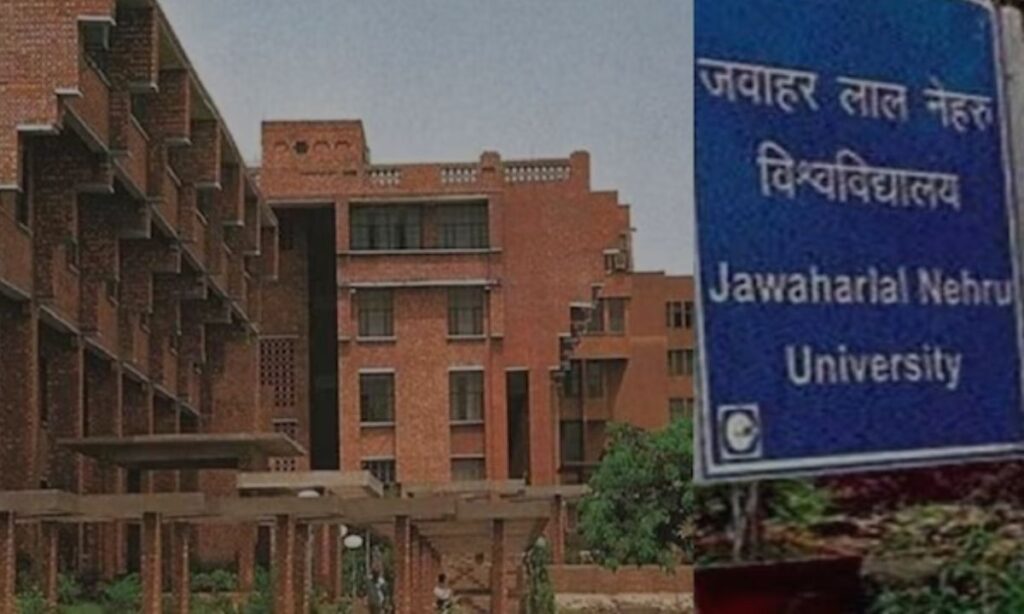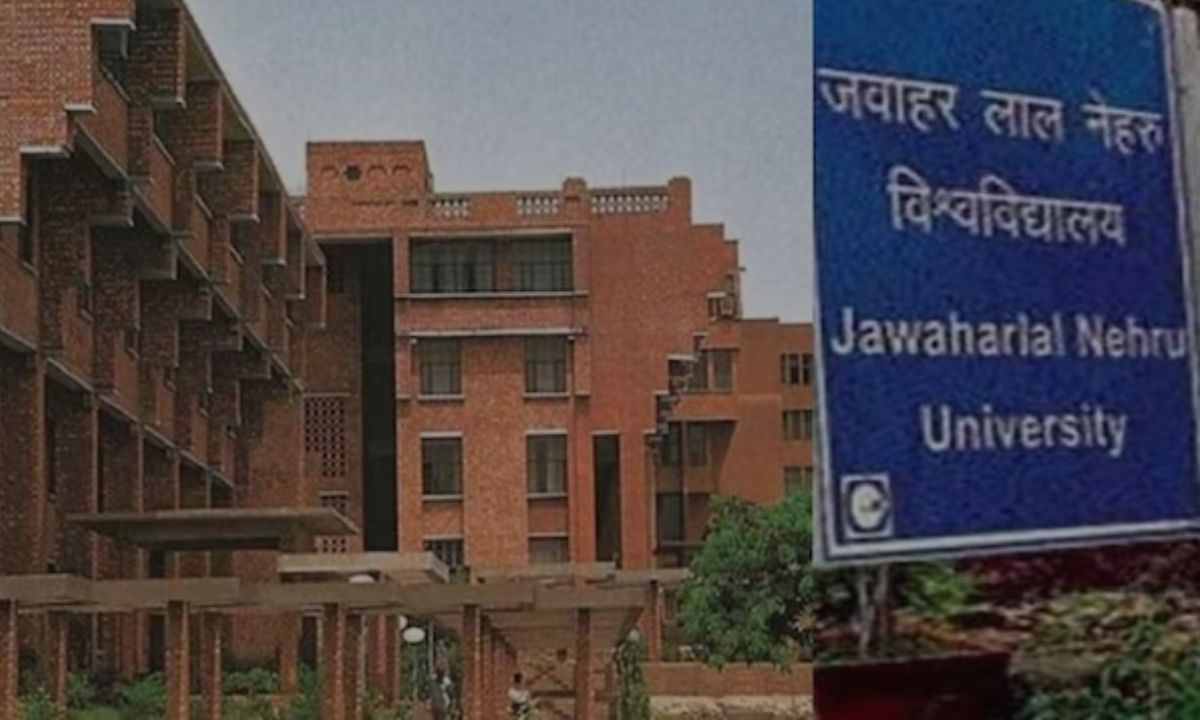
JNU Ended Its Partnership with Turkey’s University: Jawaharlal Nehru University (JNU) recently made headlines by suspending its academic partnership with Turkey’s Inonu University. This decision, driven by national security concerns, marks a significant moment in Indian higher education and international relations. If you’re curious about why JNU ended its partnership with Turkey’s university, this article breaks down the context, reasons, and implications in a way that’s easy for anyone to understand-whether you’re a student, parent, or professional in the field.
Understanding the JNU-Turkey University Split
According to recent news reports and official statements, JNU suspended its Memorandum of Understanding (MoU) with Inonu University after a careful review of the geopolitical situation. The university cited “national security considerations” as the primary reason for this move, especially after Turkey’s vocal support for Pakistan during recent military tensions between India and Pakistan1267. This decision reflects a broader trend where Indian institutions are prioritizing national interests and security over international academic collaborations.
The Background: What Was the JNU-Inonu University Partnership?
The academic partnership between JNU and Inonu University was signed on February 3, 2025, for a three-year period. The agreement aimed to foster cross-cultural research, student exchange, and faculty collaboration between the two universities. Inonu University, located in Malatya, Turkey, is a reputable institution with a long history of academic excellence and has graduated over 150,000 students to date.
However, the partnership was suspended in May 2025, following escalating diplomatic tensions and security concerns. The decision was announced publicly on JNU’s official social media channels and was widely covered by Indian and international media.
Important Points
| Key Point | Details |
|---|---|
| Partnership Signed | Feb 3, 2025, for 3 years |
| Partnership Suspended | May 14, 2025 |
| Reason for Suspension | National security concerns, Turkey’s support for Pakistan |
| Impacted Areas | Student/faculty exchange, research collaboration |
| Related Developments | Other universities (e.g., Kanpur University) also suspended MoUs with Turkish institutions |
| Official Statement | “JNU stands with the Nation. #NationFirst” |
Why Did JNU End Its Partnership with Turkey’s University?
1. National Security Concerns
The most important reason for ending the partnership was national security. JNU’s leadership made it clear that the university must prioritize the safety and interests of the country. The Vice-Chancellor, Prof. Santishree Dhulipudi, stated, “National interest comes first,” emphasizing that academia has a responsibility to stand with the nation, especially during times of conflict.
2. Geopolitical Tensions: Turkey’s Support for Pakistan
The suspension came in the wake of heightened tensions between India and Pakistan, particularly after India’s “Operation Sindoor”-a military response to terrorist attacks originating from Pakistan. Turkey openly supported Pakistan during this period and was accused of supplying drones used by Pakistan in the conflict67. This support was seen as a direct challenge to India’s sovereignty and security.
3. Public Sentiment and Institutional Pressure
There was a surge in public protests and calls for boycotts of Turkish goods and tourism across India16. Many believed that continuing academic collaborations with Turkish institutions would send the wrong message and potentially compromise national interests.
4. Precedent for Other Universities
JNU’s decision set a precedent. Other Indian universities, such as Kanpur University and Jamia Millia Islamia, also suspended their agreements with Turkish institutions for similar reasons34. These actions reflect a broader shift in Indian academia towards prioritizing national security over international partnerships when necessary.
What Does This Mean for Students and Faculty?
Immediate Impact
- Student and Faculty Exchange Programs: All planned exchanges and collaborative research projects between JNU and Inonu University have been put on hold indefinitely.
- Research Collaboration: Joint research initiatives, especially in the fields of language, literature, culture studies, and computer sciences, are suspended.
- International Exposure: Students and faculty lose an avenue for international exposure and cross-cultural learning.
Long-Term Implications
- Academic Independence: Indian universities may become more cautious in forming international partnerships, especially with countries perceived as hostile or unsupportive of India’s interests.
- Policy Shifts: There may be increased scrutiny of existing and future MoUs with foreign institutions, particularly those from countries with conflicting geopolitical interests.
- Career Considerations: Students and researchers interested in international collaboration should stay informed about the political and diplomatic context of partner countries.
Practical Advice: Navigating Academic Partnerships in a Changing World
For Students
- Stay Updated: Always check the latest news and official university announcements before applying for exchange programs or international research opportunities.
- Diversify Options: Consider universities in countries with stable diplomatic ties to India for international exposure.
- Focus on Skills: Use this time to build skills that are valuable globally, such as language proficiency, digital literacy, and cross-cultural communication.
For Faculty and Researchers
- Risk Assessment: Before entering collaborations, assess the political and security risks associated with partner institutions.
- Build Local Networks: Strengthen collaborations within India and with countries that have strong, positive relations with India.
- Document Achievements: Keep records of your international work, but be prepared for sudden changes in partnerships due to external factors.
For University Administrators
- Policy Review: Regularly review international agreements to ensure they align with national interests and security policies.
- Transparent Communication: Keep students and faculty informed about changes in international collaborations and the reasons behind them.
- Engage with Government: Work closely with government agencies to understand the broader diplomatic landscape and anticipate potential risks.
The decision by Jawaharlal Nehru University to end its partnership with Turkey’s Inonu University is a clear example of how global politics can directly impact academic life. By prioritizing national security and standing with the nation, JNU has set a precedent for other Indian institutions. While this move may limit some international opportunities in the short term, it underscores the importance of aligning academic collaborations with national interests.
For students, faculty, and administrators, the key takeaway is to stay informed, adaptable, and proactive in navigating the evolving landscape of international education.
Frequently Asked Questions (FAQs)
Why did JNU suspend its partnership with Turkey’s Inonu University?
JNU suspended its partnership due to national security concerns, especially after Turkey supported Pakistan during recent military tensions with India.
What was the purpose of the JNU-Inonu University MoU?
The MoU aimed to promote cross-cultural research, student and faculty exchange, and collaborative academic projects between the two universities.
Will this affect other international collaborations at JNU?
While this decision is specific to Turkey’s Inonu University, it may prompt JNU and other Indian universities to review and reassess their international partnerships, especially with countries involved in geopolitical tensions with India.
Can students still apply for exchange programs with other countries?
Yes, students can still apply for programs with universities in countries that maintain stable and friendly relations with India.
Where can I find official updates on such matters?
Visit the JNU Official Website or follow their verified social media accounts for the latest announcements.









No Comments Yet
Be the first to share your thoughts.
Leave a Comment